Fahrenheit 451
Fahrenheit 451 by Ray Bradbury is a classic dystopian novel that explores a future where books are banned and "firemen" burn them. The protagonist, fireman Guy Montag, undergoes a profound transformation after meeting a free-spirited neighbor, leading him to question and ultimately rebel against a society that suppresses literature and critical thinking. The novel, recognized for its potent defense of intellectual freedom and critique of censorship, has inspired various adaptations and continues to resonate with readers since its publication in 1953.
Association copy signed & inscribed by Bradbury in 1971: "For Stuart Schiff! / from / Ray Bradbury / Nov. 18, 1971." Stuart David Schiff was an editor best known in science fiction and fantasy circles for editing Whispers, a U.S. semiprozine (semiprofessional magazine), which included work by Bradbury.
Hardcover. First Edition, First Printing. Octavo, cloth. New York: Ballantine Books, 1953. Pringle, Science Fiction: The 100 Best Novels (8). #11098.
Near fine with just some minor rubbing to extremities in near fine, original dust jacket with some minor nicks and slight fading to the "451" on the spine which is common with this title. Overall, a very attractive and bright copy.

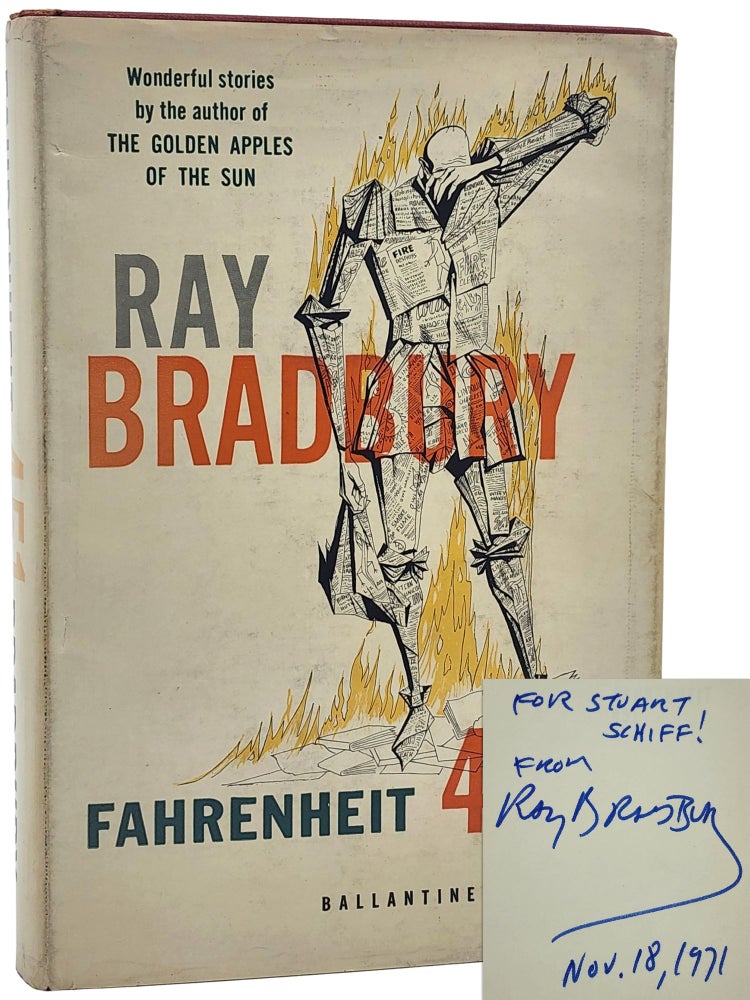
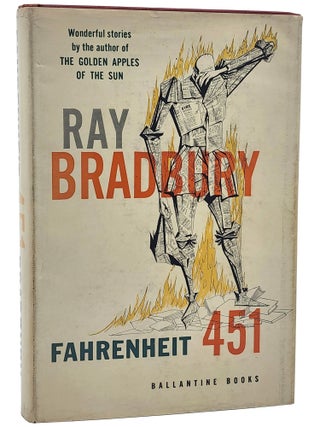
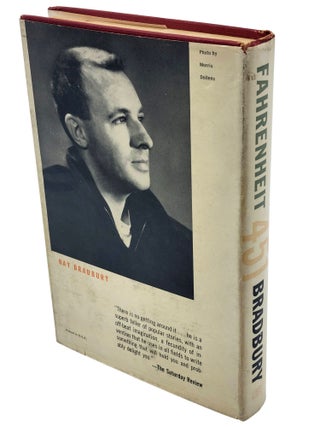
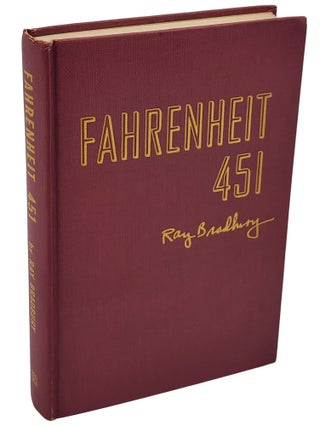
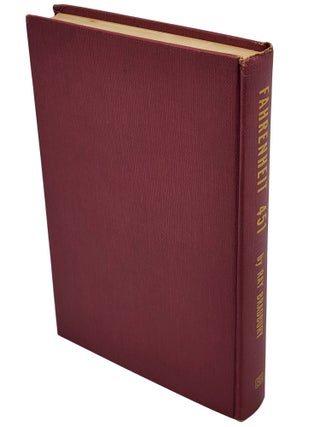
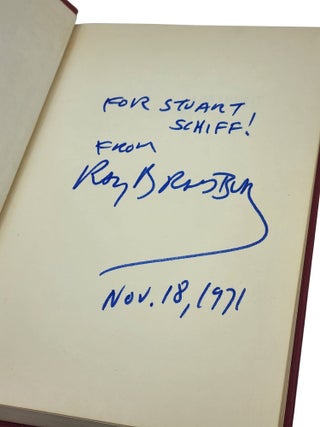
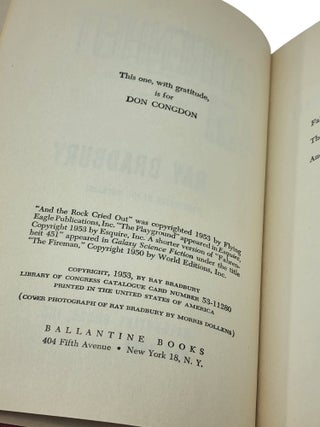
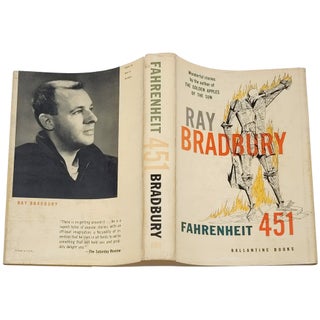
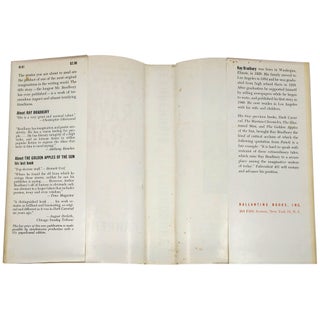
Fahrenheit 451, a classic dystopian novel by Ray Bradbury, published in 1953, depicts a haunting vision of a future where books are banned and "firemen" are tasked to burn them. The narrative centers around Guy Montag, a fireman who undergoes a significant transformation, beginning to question his societal role and personal contentment after meeting his free-spirited neighbor, Clarisse McClellan. This teenage girl prompts Montag to reassess both his happiness and perspective on societal norms.
Clarisse's sudden and unexplained disappearance triggers a series of events that unravel Montag's life. During a routine mission to burn a house filled with books, Montag impulsively steals a book, and, shockingly, watches as the elderly homeowner decides to die with her books rather than live in a world void of literature. This pivotal moment, along with Clarisse's disappearance and his wife Mildred's growing emotional detachment—intensified by addiction to mind-numbing entertainment—drives Montag to reconsider his career and seek out the forbidden knowledge within books. This pursuit leads him to Faber, a retired English professor, who also longs for a society valuing literacy and intellectual freedom.
However, Montag's subversive activities are eventually uncovered, revealing his secret stash of books hidden in his ceiling. This discovery precipitates a dramatic series of events, forcing Montag to elude both the firemen and the Mechanical Hound—a robotic dog-like entity designed to hunt those hoarding books. Successfully escaping, Montag finds a group of intellectual exiles residing in the countryside who have memorized entire books to preserve their contents for future generations with the hopes of rebuilding society after the destruction of this one.
Since its publication, Fahrenheit 451 has resonated with readers for its unyielding defense of literature and critical thinking, as well as its stark criticism of censorship and blind conformity. Written during the McCarthy era, a time marked by pervasive fear and anti-communist sentiment, Bradbury's novel stands as a compelling allegory, forewarning of a dystopian future where literature and free thought are not just devalued but are actively suppressed.
Fahrenheit 451 has been adapted into various films and television productions, most notably François Truffaut's 1966 film starring Oskar Werner and Julie Christie, and a 2018 HBO adaptation starring Michael B. Jordan.